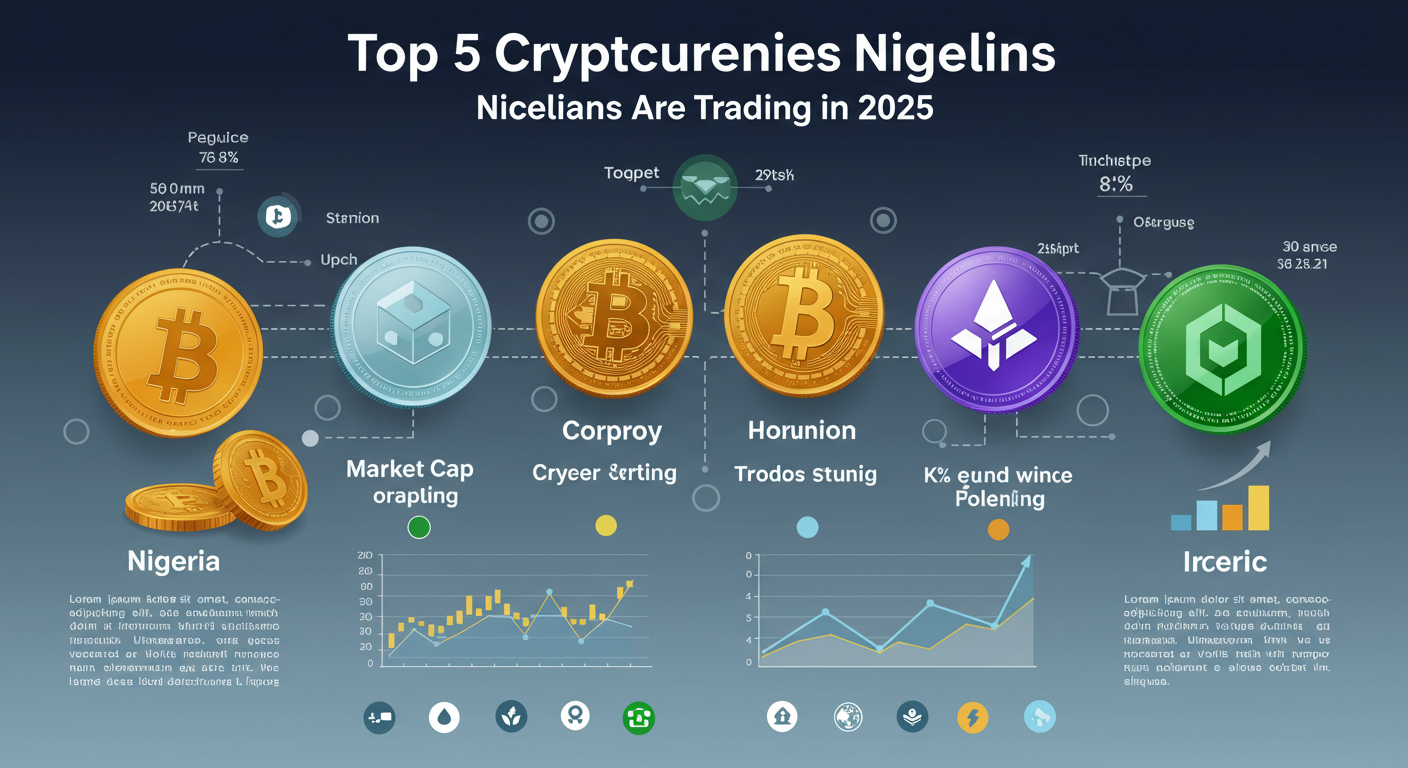
Top 5 Cryptocurrencies Nigerians Are Trading in 2025
- Posted on: May 24, 2025
In the fast-evolving world of cryptocurrency, one region has steadily become a powerful player: Nigeria. With an increasing number of Nigerians looking for alternative investments, hedge against inflation, or borderless access to finance, crypto adoption has exploded across the country.
From university students to tech-savvy professionals, and even small business owners — more Nigerians are turning to crypto not just as an asset, but as a way of life.
So, what cryptocurrencies are topping the charts in Nigeria in 2025?
Let’s dive into the top 5 most traded cryptocurrencies among Nigerians, based on market activity, user trends on platforms like EootleX, and broader ecosystem growth.
1. USDT (Tether) – The King of Stability
If you ask any serious Nigerian crypto trader what coin they use most, chances are they'll say USDT.
Why it’s popular:
It's a stablecoin, meaning it’s pegged to the U.S. dollar (1 USDT ≈ $1).
Acts as a safe store of value in the volatile crypto space.
Widely accepted on Nigerian exchanges.
Perfect for P2P trades, gift card conversions, and day-to-day transfers.
Helps users hedge against Naira devaluation.
On EootleX:
USDT is the most traded asset, available for instant buy/sell, conversion, and withdrawal. EootleX supports TRC-20 USDT, known for low transaction fees and fast speed.
2. Bitcoin (BTC) – The Gold Standard
Bitcoin is still king — the most recognized, valued, and respected cryptocurrency worldwide. Even in 2025, it remains extremely popular in Nigeria.
Why Nigerians love Bitcoin:
Seen as a long-term investment (store of value).
Globally accepted and highly liquid.
Often used for large international payments and remittances.
It’s the “first crypto” many Nigerians encounter.
Bitcoin’s high price doesn’t scare users anymore, especially with platforms like EootleX offering fractional ownership, where users can buy as little as 0.0001 BTC.
3. Ethereum (ETH) – The Powerhouse of Utility
Ethereum continues to grow thanks to its robust blockchain ecosystem that powers decentralized finance (DeFi), NFTs, and smart contracts.
Why it's gaining traction in Nigeria:
Rising interest in DeFi apps and staking.
Developers building blockchain apps and smart contracts.
ETH 2.0 has improved transaction fees and speed.
New investment products and dApps are being adopted.
Nigerians are now trading ETH for both investment and utility, and its integration into multiple platforms (including EootleX) makes it a core coin in many user portfolios.
4. Binance Coin (BNB) – The Exchange Token Turned Giant
BNB started as a utility token for discounts on the Binance exchange, but now it’s an all-round powerhouse.
Why BNB is thriving in Nigeria:
Lower fees for trades on Binance.
Acts as a payment method for crypto services.
Used in launchpads, staking, and DeFi.
Supported on multiple blockchains (BEP-2 and BEP-20).
Nigerians use BNB for quick, low-fee transactions and to gain access to other emerging coins. It’s not just a token — it’s an entry into the Binance ecosystem.
5. Tron (TRX) – The Backbone of Affordable Transactions
Tron has become a silent giant in Nigeria, largely due to its support for USDT (TRC-20) — the most cost-effective way to move crypto today.
Why TRX is gaining popularity:
Required for USDT TRC-20 gas fees.
Very low transfer fees.
Fast and reliable transactions.
Useful in platforms like EootleX and many P2P setups.
Many Nigerians don’t even realize they hold TRX — they buy it automatically when they want to send or receive USDT using the Tron network.
Honorable Mentions
While the above 5 dominate trading activity, there are a few other tokens growing quickly in Nigeria:
Solana (SOL) – Fast, scalable, and gaining traction with NFT projects.
Shiba Inu (SHIB) – Loved by the meme community and speculative investors.
Ripple (XRP) – Used for fast remittances.
EOT (EootleX Token) – Coming soon, designed to power services inside EootleX and potentially beyond.
What This Means for Crypto in Nigeria
These trends tell us that Nigerians are not just trading — they are adapting. The community is growing more sophisticated, moving from simple buy/sell to understanding blockchain, smart contracts, and DeFi opportunities.
More than that, crypto is being used for:
Freelance payments
Business transactions
Cross-border trade
Savings and inflation hedging
Daily transactions
